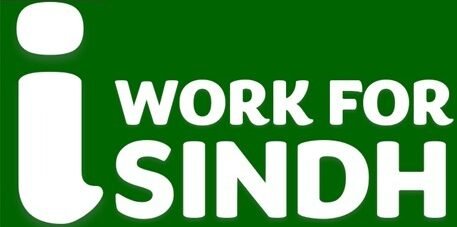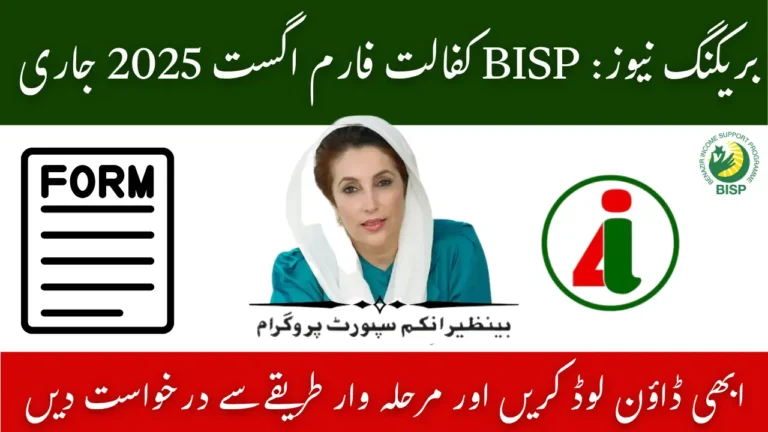BISP 2025 Tax Rules are causing thousands of poor families to lose support just because their CNIC is listed as a tax filer. This easy guide explains what’s happening, how to check your status, remove your name from the list, and protect your BISP eligibility.
Imagine you’re a poor mother living in a remote village in Pakistan. You don’t have a job. You barely have enough food. And suddenly, the BISP money that helped feed your kids stops coming. You rush to the BISP center, and they tell you something shocking:
“You are no longer eligible. You are a tax filer.”
But you never filed any taxes. You’ve never even been to an FBR office. Then how did this happen?
This is not just your story. In 2025, thousands of poor families across Pakistan — especially in Balochistan, Sindh, South Punjab, and Khyber — are facing this strange problem. This article will explain everything in simple words. So let’s begin.
What is BISP and Why Is It Important?
The Benazir Income Support Programme (BISP) is the biggest government program that helps poor families in Pakistan. Every three months, eligible families receive Rs. 9,000 or more as financial help. This money helps them buy food, clothes, medicines, and send their children to school.
But in 2025, new verification systems and rules are removing many people from the program.
What Are Tax Filer Rules and Why Are They a Problem?
In Pakistan, if your name appears in the FBR Active Taxpayer List (ATL), you are considered a “tax filer.” This means the government believes:
-
You have enough income
-
You pay taxes or filed tax returns
-
You don’t qualify as poor
Because of this, BISP automatically removes you from the list of deserving families.

But Most People Are Falsely Marked as Tax Filers
This is the real problem.
In many remote areas, poor people are being added to the ATL list without even knowing. Here’s how:
-
Mobile SIM or business in your name
-
Bank account used by someone else
-
Land or house registered in your CNIC
-
Remittance from abroad received in your account
-
Utility bills or licenses linked to you
Even if you didn’t earn a single rupee, this makes you a “filer” in the system.
True Story from Rural Sindh
Sakina Bibi, a widow from Mirpurkhas, used to receive Rs. 9,000 every 3 months under BISP. In January 2025, her payment stopped. She was told she’s a tax filer.
She later found out her son had used her CNIC to register a mobile shop. That one mistake cost her BISP forever.
How to Check If You Are a Tax Filer
Method 1: Via SMS
-
Send your CNIC (without dashes) to 9966
-
You’ll get a message saying “Filer” or “Non-Filer”
Method 2: FBR Website
-
Visit: https://www.fbr.gov.pk
-
Go to “Active Taxpayer List”
-
Enter your CNIC
-
If your name shows up, you’re a tax filer
How to Remove Your Name from Tax List
If you’re wrongly listed:
-
Go to nearest FBR office
-
Take your CNIC, and write an application saying:
-
You are poor
-
You never filed taxes
-
Someone used your CNIC by mistake
-
-
Wait for removal from ATL
This process may take 2 to 6 months and may need help from a lawyer or tax agent
Most Common Ways People Become Tax Filers Without Knowing
| Reason | Explanation |
|---|---|
| SIM registered for shop | Used for business, links CNIC with income source |
| Remittance from abroad | Shows “foreign income” in system |
| Land in village on CNIC | Property = asset = assumed financial stability |
| Account used for transactions | Shows “business activity” on paper |
| CNIC misused by agent | Fraud or fake registration for business purposes |
Why Remote Areas Are Most Affected
Remote areas like Gilgit, Chitral, South Punjab, and interior Sindh suffer more because:
-
People are less educated
-
CNICs are often used without consent
-
No awareness of tax systems
-
BISP centers are far away
-
No legal help available
This is making innocent families suffer silently.
What Can You Do If BISP Payment Stops?
Step 1: Check your filer status
Step 2: Visit the nearest BISP tehsil office
Step 3: Explain your issue, show documents, fill dynamic survey form
Step 4: If needed, go to FBR office to get off ATL list
Step 5: Submit a new application after fixing your filer status
BISP Dynamic Survey 2025 – Important Step
Even if you are removed, you can become eligible again through the dynamic survey.
-
Visit the nearest registration center
-
Bring original CNIC and household details
-
Update your data (income, members, rent status, etc.)
-
Wait for approval again
Many families are being re-added after the survey if their PMT score is below 32
9 FAQs About BISP & Tax Filer Rules
Q1. What is the meaning of tax filer in BISP?
If your name is in the FBR Active Taxpayer List, BISP considers you financially strong, even if you’re poor.
Q2. How do I check if I’m a tax filer or not?
Send CNIC to 9966 or visit FBR website to check the ATL list.
Q3. Can I still get BISP if I’m a tax filer?
No. You’ll be considered ineligible. You need to get your name removed first.
Q4. What is the PMT score needed for BISP in 2025?
PMT (poverty score) must be below 32 for most cases.
Q5. I received foreign remittance. Will I be removed from BISP?
Yes, if it’s in your CNIC-linked account. Try to use someone else’s account next time.
Q6. What is the process to remove tax filer status?
Go to FBR, submit an application with proof, and wait for correction.
Q7. Can I re-apply for BISP after removal?
Yes. You must complete the dynamic survey again.
Q8. My husband used my CNIC for his work. Will it affect my eligibility?
Yes, if the system detects business or income activity under your name.
Q9. How long does it take to get re-added to BISP?
If all documents are correct, it may take 1–3 months.
Important Tips to Stay Eligible for BISP
-
Never let anyone use your CNIC for business or SIM
-
Use a separate account for remittance
-
Avoid land/property registration under your name
-
Keep checking tax filer status every few months
-
Stay updated with dynamic survey calls from BISP
BISP 2025 Tax Rules Conclusion
The purpose of the BISP program is to support poor families, but the BISP 2025 Tax Rules are now pushing many truly deserving people out of the system. Innocent mothers and struggling families are being punished for things they didn’t even know about—like someone using their CNIC or receiving a small amount in their bank account. These hidden rules are turning life even harder for people in remote villages who depend on this support.
It’s time for the government to review and fix the problems in the system. Until then, families must stay informed, check their CNIC status regularly, avoid mistakes, and speak up if wrongly removed. Because under the current BISP 2025 Tax Rules, even a small mistake can take away the biggest lifeline a poor family has.







